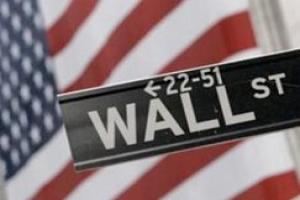Where do you get your news? How often do they tell you what will happen? How often do they get it right?
For decades, mainstream media have dominated many people’s news consumption. These days, a lot of people get their news from social media.
In both MSM and social media, analysis and predictions are tainted by preferences and hopes. Pundits, influencers, and most of your friends on Facebook tend to promote expectations that match what would happen if they could choose the outcome.
It’s not a new issue. I recall hearing on NPR nearly two decades ago that a respected predictor of political or economic outcomes had explicitly stated in so many words that he based his prediction on analysis, not on his hopes. After the outcome went the other way, he publicly admitted that he had indeed predicted based on hope rather than on analysis. Yes, he admitted to lying about the basis of his prediction.
More commonly, the deceit is more opaque. Biased polls and wishful thinking pervade much of our media consumption.
This is not an adequate solution for the predictions that we often rely on.
Of course, even the best polls and analysis will be wrong sometimes—no one demands perfection. As Yogi Berra famously observed, “Predictions are hard, especially about the future.”
Nonetheless, in a free market, whenever a solution proves inadequate, someone will create an alternative, and sometimes the alternative will prove superior.
In this case, the alternative solution I want to explore is prediction markets, sometimes known as information markets or virtual markets. Mises.org has covered this before, but I find that prediction markets remain largely outside the public awareness.
As defined by Investopedia, “The prediction market is a collection of people speculating on a variety of events—exchange averages, election results, commodity prices, quarterly sales results or even such things as gross movie receipts.”
Several such markets exist and have existed, and they often blur the lines between gambling and formal financial markets. That blurry line puts them on the wrong side of the law at times. Intrade was the first information market that I ever heard of, and it closed in 2013 following repeated clashes with the US federal Commodity Futures Trading Commission and other financial difficulties.
Intrade may have been the first predictions market to enter my awareness, but it wasn’t the first to seek a better way of predicting the future. The Tippie School of Business at the University of Iowa established the Iowa Electronic Market in 1988; the IEM successfully predicted the presidential election that year. Since then, its predictions have generally compared favorably with the polls.
Using elections as an example, polls ask people how they plan to vote; prediction markets ask people to put money behind how they think the election will turn out. As we commonly find in markets, monetary motivation tends to promote positive outcomes. Of course, people still tend to bet on their preferred candidates. If they think he will lose, then they generally just don’t bet at all. And some people try to sway the market with massive bets on their candidate against the odds. Sometimes this sways the market, and sometimes it doesn’t. At any rate, those who make such bets tend to lose a lot of money.
Elections are a popular subject for prediction markets, but they cover many other topics as well. The economic factor motivates people to find information that they may not otherwise have found. Sometimes this phenomenon is inexplicable, as when the Intrade market on the capture of Saddam Hussein started changing two days before US forces captured him.
The invention and development of blockchain technology holds promise for prediction markets. Smart contracts are a possibility that comes to mind readily, but the beauty of the free market is that no individual can think of all the possibilities, and this article is not here to speculate or list all of them.
There are several prediction markets that use or will use blockchain technology, including Gnosis, Augur, and Polymarket. Polymarket in particular is a rising star: it recently raised $4 million, and its strong early growth is supported by frictionless UI (user interface) and continual innovation and development of the platform.
Prediction markets may not be the best, only, or final solution to the free market’s demand for quality information and accurate predictions, but few things in the free market are. You might think they’re a passing blip with no future, but I wouldn’t bet on that if I were you.
THIS ARTICLE ORIGINALLY POSTED HERE.





